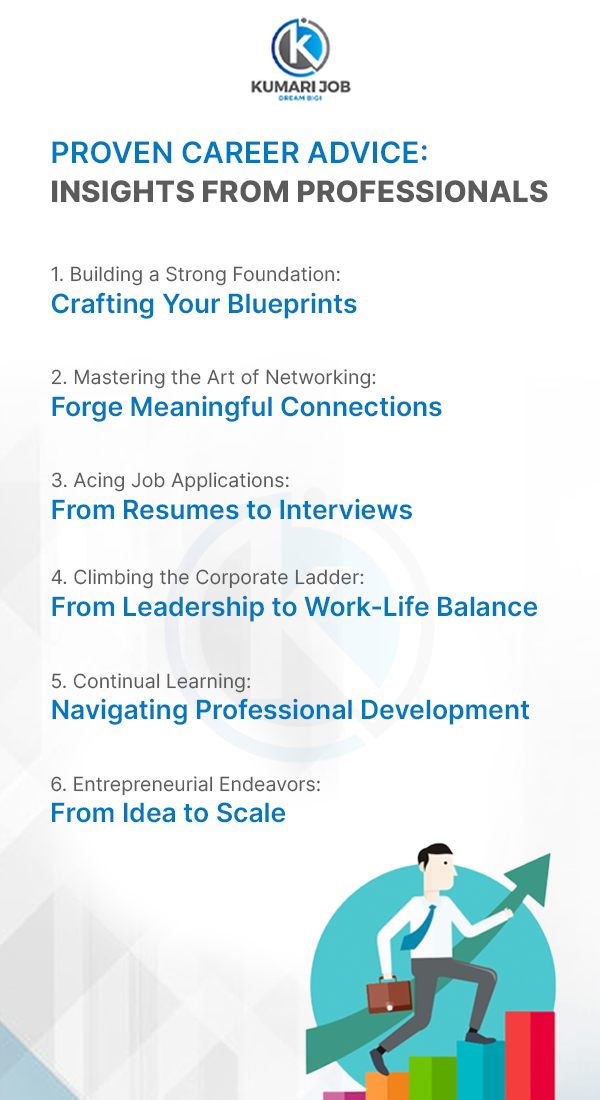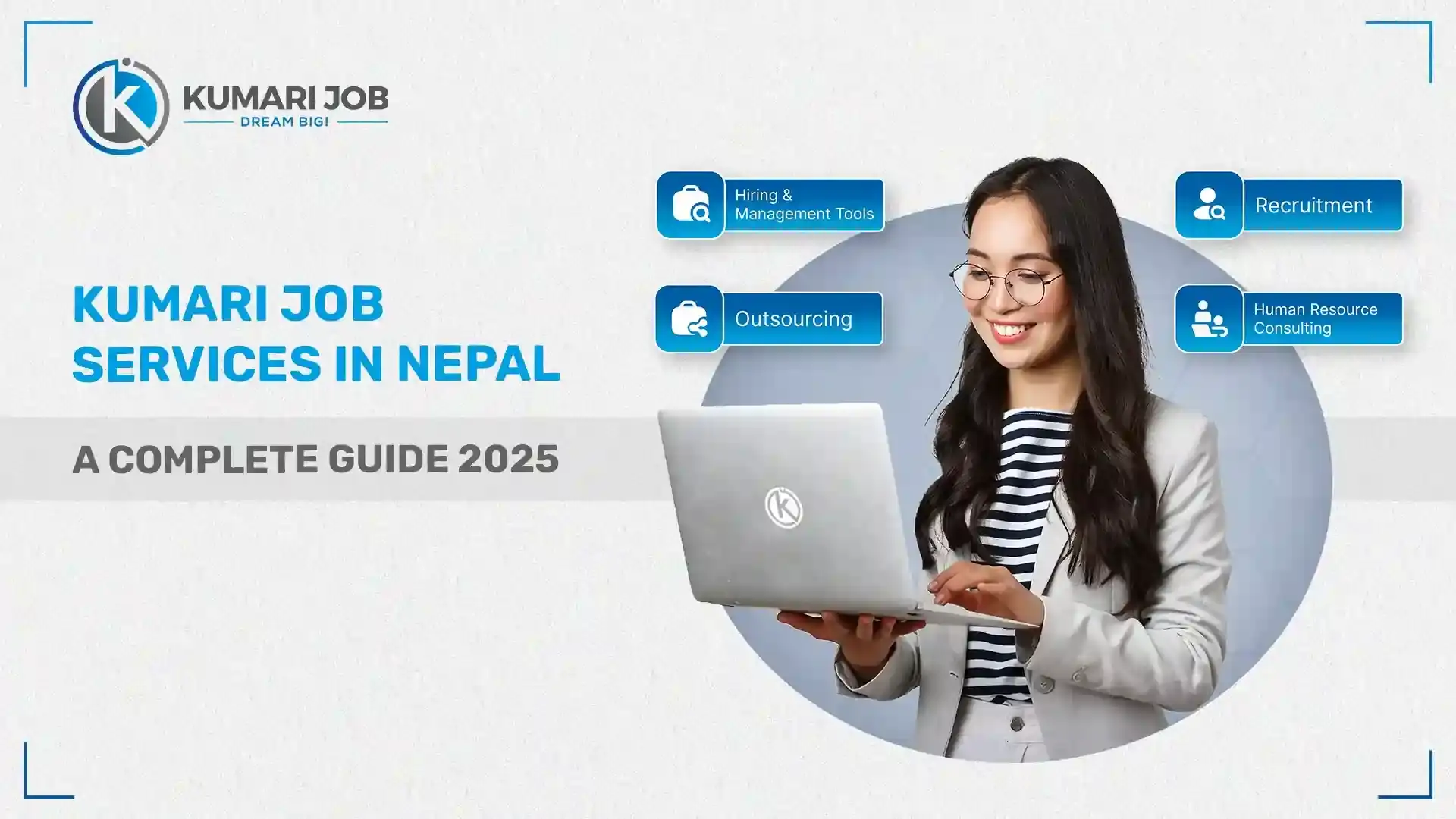
Embarking on a career journey can often feel like navigating uncharted waters. The right career advice can help you reach a brighter future. In this blog, we'll dive deep into career advice from professionals who have walked the path to success. We'll explore career tips, development strategies, and invaluable insights that will help you steer your career ship toward the shores of success.
So, fasten your seatbelts because we're about to set sail on a voyage of career enlightenment!
In this blog
What is Career Advice?
Career advice is like a compass for your professional life. It's the collective wisdom, strategies, and insights shared by individuals who have successfully navigated the tumultuous waters of the job market. Whether you're a recent graduate searching for your first job or a seasoned professional looking to climb the corporate ladder, career advice provides the tools and knowledge to make informed decisions and achieve your career goals.
When seeking the best career advice, it's essential to consider various sources. This can include mentors, industry experts, books, online resources, and even peers who have succeeded in their respective fields. Gathering insights from diverse perspectives can help you craft a well-rounded approach to your career development.
Career Tips: Your Guiding Stars
1) Invest in Continuous Learning
Staying ahead means constantly acquiring new skills and knowledge in today's fast-paced world.
How? Take courses, attend workshops, and read industry-related materials to remain relevant in the industry and for effective career improvement.
Continuous learning is the cornerstone of professional growth. As the job market evolves, so should your skill set. Consider enrolling in online courses or pursuing certifications that align with your career goals. Certification from well-recognized companies and industry experts can help you stand out. This enhances your knowledge and demonstrates your commitment to self-improvement to potential employers or collaborators.
2) Networking is Key
Building a robust professional network opens new opportunities.
How? Attend industry events, use LinkedIn effectively, and nurture relationships with colleagues and mentors.
Networking is more than just collecting business cards or connecting on social media. It's about building meaningful relationships with others in your field, which is crucial career advice for young adults. Attend conferences, seminars, and workshops relevant to your industry, and be bold and start conversations with fellow attendees. Building a solid network can lead to job referrals, partnerships, and valuable connections.
3) Set Clear Goals
Define your career objectives and create a roadmap. Having a clear goal provides direction and motivation.
Goal-setting is crucial to career success; the best career guide can help you navigate this process effectively. Whether aiming for a specific job title, salary, or level of responsibility, setting clear, achievable goals enables you to stay focused and measure progress. Reviewing and adjusting your goals periodically as your career evolves is essential.
4) Embrace Change
The professional landscape is ever-evolving, offering a wide range of possibilities and opportunities on the career ideas list for those who are adaptable and willing to embrace change, whether it's a new role, technology, or industry trend.
Change is constant in the world of work. Instead of resisting it, view change as an opportunity for growth and follow these valuable career success tips. Embrace new technologies, methodologies, and market shifts. Adaptability is a highly sought-after trait in today's job market.
5) Work-Life Balance
Balancing your personal and professional life is crucial for long-term success. You should start by avoiding burnout and prioritizing self-care.
Achieving work-life balance is essential for maintaining your physical and mental well-being. It's easy to be consumed by work, but remember that taking time for yourself, spending time with loved ones, and pursuing hobbies outside of work can recharge your energy and improve your overall satisfaction with your career.
Proven Strategies for Career Advancement
To further your career, consider these best career guide strategies:
1) Strategic Networking
Expand your professional network strategically. Attend industry conferences, join relevant online forums, and build connections that can lead to opportunities.
Networking isn't about quantity but quality and is crucial to career path advice. Instead of trying to connect with as many people as possible, focus on building deeper relationships with individuals who share your professional interests or can provide valuable insights. Engage in meaningful conversations, offer appropriate assistance, and seek collaboration opportunities.
2) Skill Diversification
Don't limit yourself to a single skill set. One essential aspect of career development tips is to develop a broad range of skills that make you a valuable asset in any industry.
The modern job market values individuals who possess a diverse skill set. While it's essential to excel in your primary field, consider acquiring complementary skills that enhance your versatility. For example, if you're in marketing, learning fundamental data analysis or graphic design can set you apart.
3) Seek Mentorship
Find a mentor to guide your career journey and discover essential career growth tips. Their experience can provide invaluable insights and help you avoid common pitfalls.
Mentors can offer valuable guidance based on their own experiences and are often a crucial part of careers advice jobs. When seeking a mentor, look for someone who has succeeded in your field and shares your values and goals. Establishing a mentor-mentee relationship can provide you with personalized advice, encouragement, and access to a broader network.
4) Effective Communication
Strong communication skills are essential. Practice articulating your ideas clearly and concisely, whether in writing or in person.
Effective communication is a critical skill in nearly every profession. It encompasses written and verbal communication and the ability to listen actively. Consider taking public speaking, writing, or interpersonal communication courses to enhance your communication skills. Additionally, seek feedback from colleagues or mentors to identify areas for improvement.
Insights from Professionals
1) Thriving Even When It's Not Your Dream Job
Experts with diverse career journeys share their best professional advice on thriving in roles that may not be the dream jobs initially. According to Miriam Salpeter, Founder of Keppie Careers,” The best career or job is the one in which you’re using the skills you enjoy. But not every job needs to address all of your passions. Use every job as an opportunity to learn something new and keep an open mind; you may find that you enjoy something you never imagined would appeal to you”.
2) Work Hard, Advance Your Career
Efficiency is a cornerstone of career advancement; professionals who focus on streamlining tasks, eliminating inefficiencies, and consistently delivering high-quality results tend to stand out in their fields. Keith Johnston, Event Consultant at Plannerwire, says," Work harder than everyone under or above you. Nothing commands respect more than a good work ethic. This means being the first one at the event in the morning and the last one to leave in the evening. No one said this gig was easy."
3) Stand Out in Your Job
Striving for excellence in your career is a continuous journey. You can start by sharing your insights with colleagues, superiors, and peers to drive up your professional growth. As remarked by Kathleen Tierney, President of Berkley One," There’s never going to be a precisely right moment to speak, share an idea, or take a chance. Just take a moment—don’t let thoughts like “I don’t feel like I’m ready” get in the way. See if you have the main things or the opportunity will pass you by. Don’t let perfect get in the way of really good."
These real-life professionals and their advice are concrete examples of the insights you can gain from seasoned experts in their respective fields, providing actionable career advice and guidance for your career journey.
Conclusion
In the ever-evolving landscape of careers, the importance of career advice cannot be overstated. It serves as a beacon of light in the darkest of professional storms. By following career tips, embracing change, and implementing proven strategies for career advancement, you can chart a course towards success.
Whether seeking specific career guidance tips on networking, resume building, or interview techniques, remember that your career journey is unique, and there's no one-size-fits-all approach. Take the advice that resonates with you, adapt it to your circumstances, and always keep your goals in sight.
So, as you embark on your professional voyage armed with these insights, may your career sail smoothly and reach the shores of success with confidence and determination. Here's to a thriving future!
Read more related articles: https://tinyurl.com/3ams456a.
Frequently Asked Questions
To seek career advice from a professional, follow these steps:
- Identify the right expert: Look for someone with experience in your desired field.
- Reach out respectfully: Send a polite and concise email/ message explaining your request.
- Be specific: Ask straightforward, focused questions about your career goals.
- Respect their time: Acknowledge their expertise and appreciate any guidance they provide.
The most universal career advice is prioritizing continuous learning and adaptability. In today's ever-changing job market, acquiring new skills and staying current is invaluable. Embrace challenges, seek feedback, and be resilient despite setbacks. This mindset will serve you well throughout your career.
A prosperous professional career is built on a combination of factors:
- Passion and purpose: Pursue a career aligned with your interests and values.
- Continuous learning: Stay updated with industry trends and develop relevant skills.
- Networking: Build meaningful professional relationships for opportunities and support.
- Adaptability: Embrace change and seek innovative solutions.
- Work ethic: Maintain a solid commitment to your work and consistently deliver results.
Career growth is highly personal, but you must prioritize the following:
- Fulfillment: Finding purpose and satisfaction in your work.
- Skill development: Continuously improving and expanding your skill set.
- Work-life balance: Maintaining a healthy equilibrium between work and personal life.
- Financial stability: Achieving your financial goals and security.
- Impact: Making a meaningful contribution to your field or community.
The best advice for adults embarking on a new career is to thoroughly research and understand your chosen field, identify your transferable skills, and be open to learning and adaptability. Networking, mentorship, and continuous skill development are crucial for a new career.









Loading Comments...